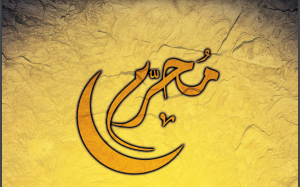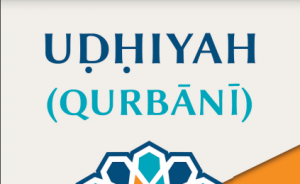Throughout our life we remain students of one discipline or another. Whether we are acquiring religious knowledge by studying the Arabic alphabet or have reached the completion of the final lessons of Sahīh-al-Bukhārī, or we are pursuing secular knowledge by studying at school or completing our PhD, every single one of us is constantly undergoing some form of formal or informal tuition.
With regards to the acquisition of religious knowledge Imām Ghazālī rahimahullāh quotes in his book Kimiyā-e-Sa’ādat: ‘…if a person learns such an ‘ilm, acquires such knowledge which keeps him away from evil and makes him do good deeds, what else can be better than that? Such knowledge is like water from the cooling streams for the thirsty and a treatment for the sick. The more one attains such knowledge the better it is for him.’
With regards to secular knowledge, many of us do not usually realise that even its acquisition can become a means of acquiring reward. All that is required to acquire reward for this learning is to turn our attention in the right direction. There are a few salient points which, if remembered, should enable one to begin to learn in a manner that will gain benefit not only in this world but also in the hereafter.
Correct Intention
In a hadīth it is mentioned:
All actions are dependent upon intentions. (Al-Bukhārī)
Therefore before commencing any course of study we must question our intentions. Are we studying only for materialistic gain or are we studying so that we may utilise our knowledge for the benefit of mankind and thereby acquire the Pleasure of Allāh ta’ālā?
Having adopted the correct intention, we must constantly review our intentions throughout our course of study to ensure that they have not changed. Reviewing one’s intention is essential because even though in the initial stages our intentions may have been pure and full of sincerity, the influences of one’s base desires (nafs) and the influences of the environment around us during our course of study may bring detrimental, albeit, subtle changes in our motives. A useful way to gauge whether any shortcomings have crept into our intentions is to take account of our daily life and try to determine what we give preference to when there is a conflict between the Commands of Allāh ta’ālā and the demands placed upon us in our field of study. If we find that we are inclining away from the Sharī’ah, then this is a good indicator that our motives have changed. We should continually request Allāh ta’ālā to keep our intentions sincere, thus the following masnoon du’ā is extremely beneficial in this regard:
O Allāh, forgive me for those actions which we initiated purely for Your sake and into which other intentions later entered. (Al-Hizb Al-A’zam)
Choose a Good Subject
When deciding upon a course of study, one should not choose a subject merely because it is easy, rather one should endeavour to select a field of study that will be beneficial to us in both worlds and which can be a means of benefit to humanity. We should refrain from undertaking a course of study which may involve any violation of the Sharī’ah. Once again we find suitable guidance in the supplications of the Prophet sallallāhu ‘alayhi wasallam wherein one prayer states:
O Allāh save me from knowledge which is useless, from a heart that does not fear You and a prayer that is not entertained. (Al-Hizb Al-A’zam)
From this we can gauge hyphen due to the phrases used in the prayer hyphen that beneficial knowledge is only that which will help one develop the Recognition of the Lordship of Allāh ta’ālā.
Aim to be the Best
In the ahādīth, knowledge has been described as the lost property of a believer. We, as Muslim students, should aim and strive to be the experts in our chosen fields. Studying within the limits of the Sharī’ah, we should aim to acquire as much knowledge as we can and ensure that we complete our course of study with the maximum effort and striving. How is it that we, who claim to be the inheritors of the pioneers of astronomy, of mathematics, and of medicine, to name just a few fields in which Muslims have excelled, feel happy to scrape through our studies with the lowest grades.
Even though it is not possible that every person will be an expert in their field each of us should aim to try our best and thus try to provide a model representation of the Muslim student. Once we become professionals, we may be stationed at the meeting place of various cultures regardless of our work place. Our role will be of vital importance as we will become a linking bridge for the non-Muslims whose first contact and acquaintance with Islгm may be through us. Similarly we must sallallāhu ‘alayhi wasallamtrive to remain practising Muslims to ultimately serve our Muslim community that is much in need of our expertise. Once again the masnoon du’ās of the Prophet sallallāhu ‘alayhi wasallam are extremely useful in this regard with two examples being the following:
O Allāh increase me in knowledge. (20:114)
O Allāh save me from inaction and laziness. (Al-Hizb Al-A’zam)
Value Time
Time is a trust from Allāh ta’ālā and hence it needs to be valued and used appropriately. We should aim to create a timetable to ensure that we maximise the usage of our time. Many of us who do not adopt a timetable and find much to our regret near examination time that we have wasted many valuable hours in superfluous and profitless activities. We should always bear in mind the following principle that one only realises the value of something after it has been lost and experience also clearly demonstrates that to make up for lost time is impossible. We must address any weakness which may become embedded in our study habits in the early stages of our learning career, even though it may seem that there is still a long way to go before we complete our studies. Failure to rectify any shortcomings, whether academic or spiritual, will prove to be extremely detrimental to our knowledge later on. Therefore from the beginning we should aim to make the most of the time that we have at hand and refrain from frivolous and wasteful activities. In a hadeeth it is mentioned:
The sign of a believer is that he refrains from that which does not concern him. (At-Tirmidhī, Ibn Mājah)
Consequently we should also refrain from all those activities which are not beneficial to either our studies or our religion. Adopting a timetable also allows one to work on a regular basis. Bearing in mind the hadīth, The most beloved action to Allāh ta’ālā is the one done on a regular basis (Bukhārī, Muslim), a timetable will not only allow us to complete our studies but will also enable us to practice upon this hadīth.
Be Grateful & Adopt Respect
The opportunity to study is not given to all. There are many intelligent people throughout the world who due to their circumstances are unable to pursue formal education. Likewise there are many who have the opportunity to study but have not been blessed with the necessary intellectual capacities required to follow their preferred course of study. Consequently, we must constantly remain grateful for having been given not only the opportunity to study but also the relevant faculty of intelligence too. It is a famous saying among the scholars of Islam that Bā adab, bā nasīb, be adab, be nasīb i.e. the one who adopts respect is blessed (with knowledge) and the one who is lax in respect is deprived.
Gratefulness goes hand in hand with respect and thus one should respect one’s teachers, within the guidelines of the Sharī’ah, and the mechanisms e.g. books etc. by which one acquires knowledge. The humility, reverence and respect that one should adopt for knowledge and for one’s teachers is aptly demonstrated by the blessed Companions radhiyallāhu ‘anhum who used to display such rapt attention when learning from the Prophet sallallāhu ‘alayhi wasallam that it used to be as if ‘birds were perched on their heads.’
Fulfil Obligations
Upon commencing a course of study the student agrees to follow certain rules and regulations as specified by the institute/teacher. This agreement, whether written or verbal, needs to be fulfilled to the best of our abilities as this is the Command of Allāh ta’ālā that we fulfil agreements. Many of us turn up late for lectures, not meet deadlines etc. Not only are such actions an infringement of the rights of the agreement that we have undertaken, but they also portray an extremely negative view of Islam. Many of us also fall prey to the habit of making false excuses when not having met deadlines or having missed lessons. We should remember that even though our false excuses and lying may remove what may seem like a major difficulty in this world, but it will create major obstacles in the hereafter. In the ahādīth we find numerous examples of the Prophet sallallāhu ‘alayhi wasallam exhorting us to keep our agreements and to be punctual. One such famous example can be seen when the Prophet sallallāhu ‘alayhi wasallam waited for an acquaintance for three days at a certain location even though the other party had forgotten to attend. (Abū Dāwūd)
Adopt Taqwā & the Company of the Pious
Taqwā means that we try our utmost to shun every sin. In the acquisition of knowledge, sinning is a major obstacle. Beneficial knowledge which allows one to recognise his Creator is a gift from Allāh ta’ālā. We find a reference to this in Āyat-al-Kursī wherein it is mentioned, one can only grasp that amount of beneficial knowledge which Allāh ta’ālā wishes. (2:255) Thus how can we expect our knowledge to increase or be of benefit if we disobey and sever our connection with the Dispenser of knowledge? The company of the pious will help one to acquire taqwā and is a means of learning the value and respect for knowledge. Respect, gratefulness, sincerity and taqwā are all attributes and qualities of the heart which are essential requisites for the acquisition of knowledge which will benefit one in this world and the hereafter. The anti-thesis of these qualities are those attributes and illnesses of the heart such as pride, arrogance, and jealousy which prove to be obstacles in the path of knowledge. Consequently we need to aim to remove our weaknesses in not only those aspects of the Sharī’ah which are related to exoteric (external) acts such as prayer, fasting etc. but also those related to the esoteric (internal) acts such as the removal of pride and the adoption of respect and humility. The adoption of the company of the pious and of those who are experts in the fields of Sharī’ah will help one to attain these objectives inshā’allāh.
By following the above few points it is hoped that inshā’allāh we will begin to acquire the blessings of Allāh ta’ālā in our endeavours. We should aim to commence all our work with the name of Allāh and be grateful to Him upon its completion. One should also aim to learn the sunnah supplications such as ‘O Allāh increase me in knowledge’ and also study the lives of the Companions radhiyallāhu ‘anhum and pious predecessors in order to ascertain the manner in which these noble souls studied and strove in the path of knowledge. We should always bear in mind that Allāh ta’ālā is the ultimate Giver and it is only through Him that we receive beneficial knowledge that will neither lead us astray nor be detrimental for our future. Thus we should always ask Allāh, to keep us on the straight path, of those who have been rightly guided and not of those who have acquired Allāh’s anger or gone astray.
May Allāh ta’ālā give us the ability to recognise the value of knowledge, may He increase us in beneficial knowledge and may He enable us to utilise the gift of knowledge to acquire His Pleasure and Mercy. Āmīn.









